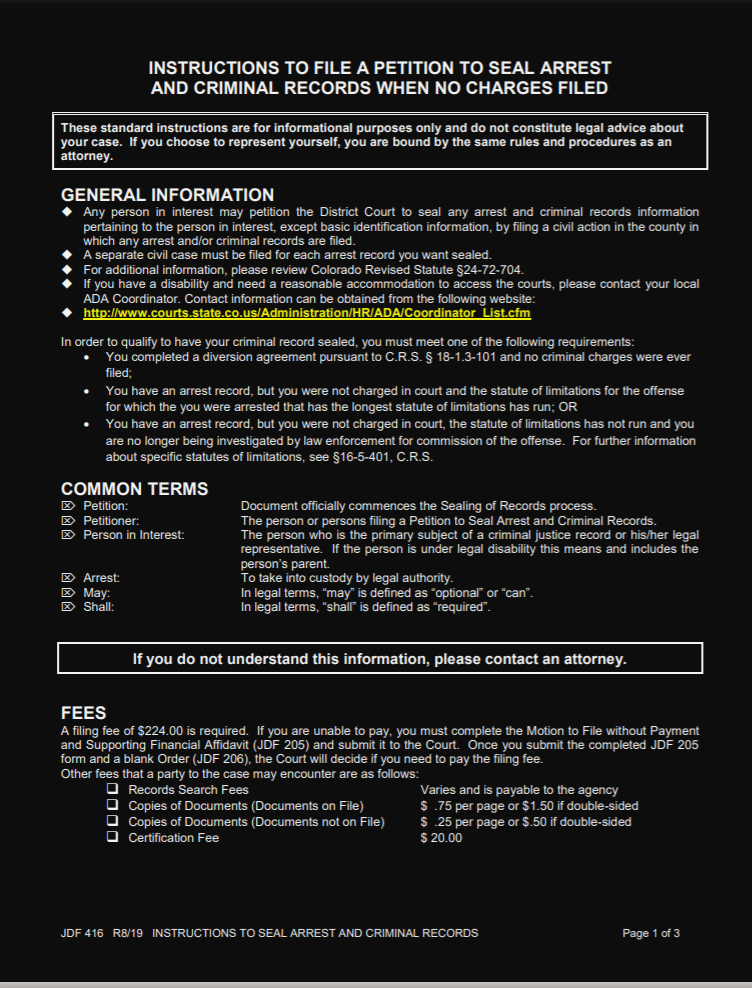The quickest and easiest way to find out if your record has been expunged is to visit the court where your case was held and ask to see the records. You know that your record is clean if the court does not have your records or if it approves your request. The question is, who else has the documents?
- How do I know if my record is clean?
- How do I get a certificate of actual innocence?
- Do expunged records show up on background checks?
- How do I go about getting my record expunged?
- Steps to expunge your criminal record
- What to remember:
- What happens after the court expunges your record?
- Can law enforcement agencies see expunged records?
- Do expunged records show up on FBI background checks?
- Is it illegal for private companies to have criminal records?
Quick take:
- Once a court seals or expunges a criminal record, the record is no longer public.
- Law enforcement officers and FBI agents require a court order to access expunged criminal records.
- Some crimes are non-expungable. This changes on a state by state basis, with some states allowing more serious crimes to be expunged.
- If the court finds you not guilty or if it drops the charges, you may apply for a “Certificate of Actual Innocence.”
- Criminal records are public records.
- Third party non-government affiliated websites have the right to post criminal records if the data is accurate.
- Criminal history held in private databases may show up in background checks even if you expunge your record.
- If you expunge your record, you may request third party sites to take down your information.
- Expungement is not automatic in most states and you must pay a fee.
- Some states allow law enforcement agents to view sealed or expunged records.
How do I know if my record is clean?
If you have checked court records and found out your record is clean, your expungement application was successful. However, the case records could be in the hands of private data-mining companies that some employers use when conducting background checks.
Additional reading: How to see recent arrest records.
Use public court website
If the court maintains a website, you may check the website’s records for your information. If your information is not there, it may mean that the court expunged your record. However, to be sure, we recommend visiting the court in person.
Note. Some states, including New Jersey, offer free legal advice to individuals who cannot afford representation. Contact the state’s legal services offices here to determine if you qualify.
How do I get a certificate of actual innocence?
A Certificate of Actual Innocence, as the name suggests, is a document that proves that your record should never have existed. You may obtain one if the court dropped the charges or found you not guilty of a crime. In other words, the court awards these certificates to individuals accused of a crime they did not commit. Contact a local attorney or visit a courthouse (Where you underwent trial) to determine if you qualify for one.
Do expunged records show up on background checks?
Expunged records may show up on background checks if your criminal record is on a private database. What you need to understand is. It is not illegal for companies to obtain criminal records- because most (but not all) are public records. When you expunge your record, the Department of Justice removes your records from public access. However, as mentioned, the records may remain public on private databases.
How to remove expunged records from private databases
If you know the company or website holding your criminal record, you may write a formal request telling them to remove your data. If that does not work, you have the option of using services that aid people in your situation, such as Checkr. Or you may also hire an attorney to help you through the process.
Expungement steps
To begin with, you must first ensure that your criminal record is expunged. To that end, you should:
- File a motion with a court to expunge or seal your record. Your attorney will help you do this.
- Once the court approves your request, go to the website, or company and ask them to delete or take down your record.
In short. Before you apply for expungement or ask a third-party website to take down your criminal record, ensure that your case is no longer open and you have completed your sentence.
That raises the question:
How do I go about getting my record expunged?
Several factors affect your eligibility for expungement, these factors include:
- The severity and nature of the offense.
- Your criminal record.
- The nature of the events for which you seek expungement.
- The amount of time that has passed since the offense.
Note that some offenses do not qualify for expungement, and some crimes are expunged automatically after a specific amount of time has passed. For example, in some states, courts automatically seal or destroy juvenile records once the teen has completed his sentence, whereas, in others, you may have to apply for expungement.
The first step to getting your record expunged is completing probation, for help with that try the app Finish Probation to keep track of all your appointments.
What crimes cannot be expunged?
In most states, the court cannot expunge the following crimes:
- Kidnapping
- Sexual assault
- Luring or enticing a minor
- Criminal sexual contact with a minor
- Endangering the welfare of a minor
- Child pornography creation, possession, and distribution.
- Permitting or causing a child to engage in a sexual act.
- Sexual exploitation of a minor
- Promoting child prostitution’
- Terrorism
- Lying under oath and false swearing
Note that attempting to or conspiring to commit any of the crimes above is a non-expungable offense. Also, state laws define expungable and non-expungable offenses. Therefore, you should consult with an attorney near you.
For example, to qualify for expungement in Illinois, state law section G.L C.276,100E-100U requires the following:
- You must have less than two records.
- The offense did not result in death and was not committed with the intent to cause serious injury or death.
- You did not commit the crime while armed with a dangerous weapon.
- The victim of the crime was not a disabled person or elderly.
- The offense was not of a sexual nature
- The accused was not under the influence of drugs or alcohol at the time of the offense.
- You did not violate harassment or restraining orders.
- The crime must be a misdemeanor
Note. In Illinois and all other states, you must complete your sentence, including probation or post-prison sentence to qualify for expungement.
Also, there is time-based expungement and non-time-based expungement. The former requires you to wait for a specified period before your request expungement.
Steps to expunge your criminal record
The process depends on state law; however, it typically begins with you filling out a petition or application (see the snippet below).

Sample: Application to seal Criminal record.
You may find an application at your local judicial headquarters or website, prosecutors office, law enforcement agency, courthouse, or bureau of investigations. If you meet the requirements specified in the application, you may proceed on your own or get professional help. We recommend getting professional help to increase the odds in favour of a successful petition.
What to remember:
- In most states expungement does not happen automatically, meaning you must petition the court.
- You must pay a fee in most states.
- State law may require you to “serve” your papers to the district attorney, and some require you to prepare legal documents.
- There may be a court hearing, making it vital to work with a professional.
- Some crimes are not eligible for expungement.
- In some states including Nevada, if an individual is indicted for another offense, the court may unseal a sealed record.
- Some states require you to report sealed or expunged records when applying for a professional license, military job, or law enforcement work.
- In Utah, federal authorities and law enforcement agencies have access to expunged records.
What happens after the court expunges your record?
After expunging your record, anyone who wants access to it must have a court order. Meaning the case record is no longer in the public domain.
Depending on state law, the court may delete, erase the record, or seal the record.
Your court record will not show up in background checks if that happens.
Do not forget, background check companies and credit reporting agencies may still hold the records. Therefore, you must find any company with your record and ask them to take it down.
Can law enforcement agencies see expunged records?
No. Law enforcement officers or agencies can only see expunged records through a court order. If the court or DOJ destroys the records, then no one can see them. Remember. State law determines who can see sealed or expunged records.
Furthermore, Police officers and agencies in most states have access to sealed records. What are sealed records?
A sealed record is not accessible to the public and does not appear in public records. However, if the records exist on a private database, they are available to the public and will show up in background checks.
Do expunged records show up on FBI background checks?
A level 2 FBI background check grants permission to agents to view sealed or expunged records. But to unseal criminal records, the agent or agency must have a court order. So no, an expunged record will not show up on an FBI background check if there is no court order.
Is it illegal for private companies to have criminal records?
As mentioned, criminal records are public records. So no, it is not illegal. To be specific, the Freedom of Information Act, First Amendment Rights, and state law allow private databases to maintain criminal records if they do not infringe on the individual’s right to privacy.
That means you may legally post court records on third-party websites that have no relations with the legal system.
What if you find your expunged record on a third-party website? Can you sue the site owner?
If the information contained on the website is accurate, you may request the site owner to take it down. However, if the information is inaccurate or the website publishes “non-public” information such as juvenile records. Then, you may sue the site owner for defamation.
We recommend consulting with an attorney to decide.
